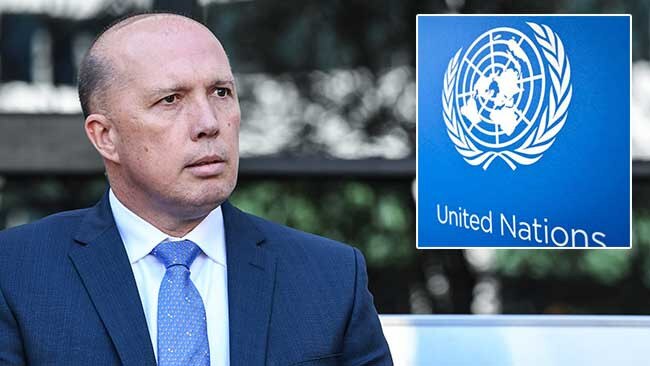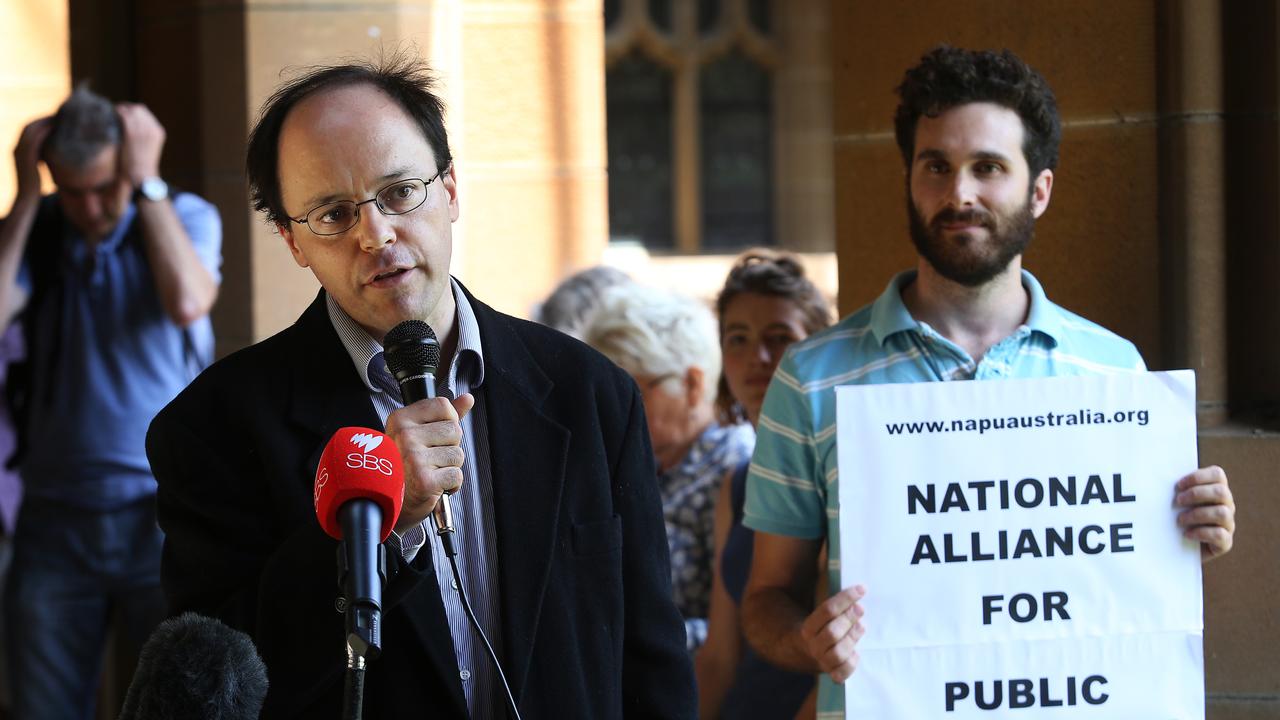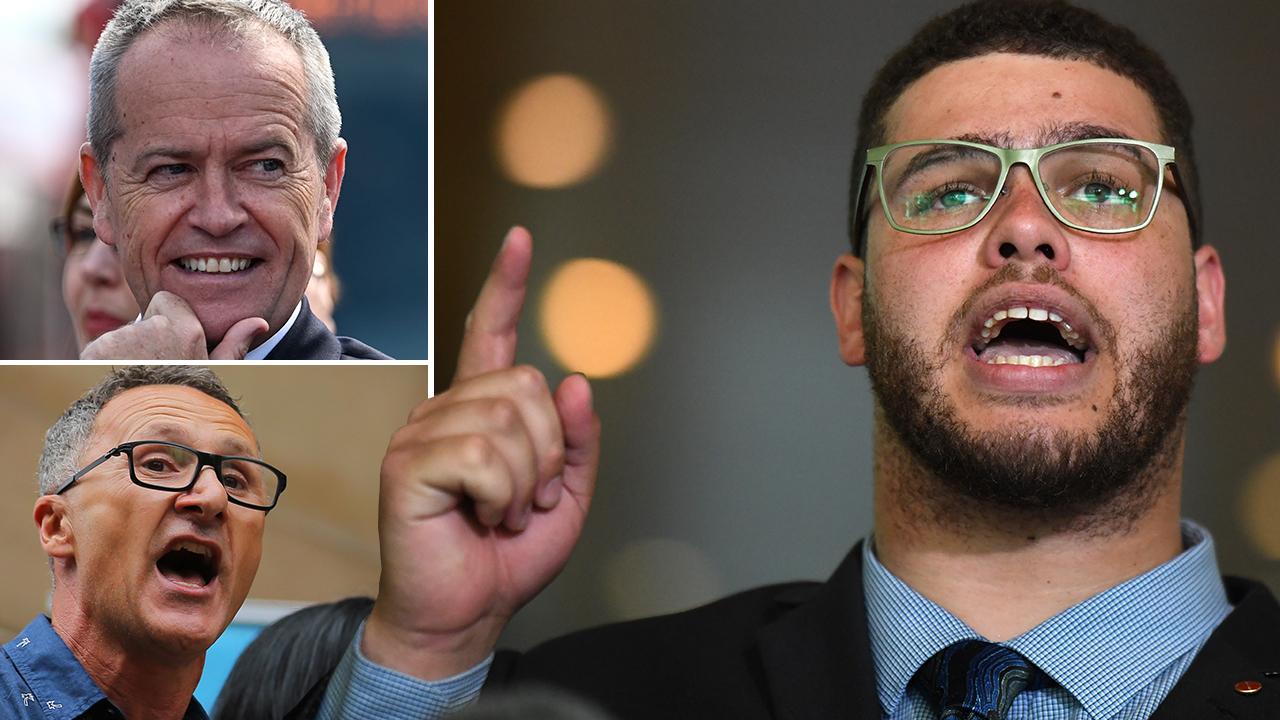
If you have reservations about Australia becoming a signatory to the United Nations’ Global Compact for Migration, fear not. According to Switzerland’s ambassador to Australia, Pedro Zwahlen, this will not compromise our sovereignty. The compact, he told The Australian this week, “is neither a treaty nor a convention and has no legally binding power.”
The usually serene Swiss, who together with the Mexicans (the country, not the socialists down south) have pushed for the compact, are a tad peeved with us, or more precisely Home Affairs minister Peter Dutton. Last week he announced that Australia would not sign off on the compact in its current form. “We’re not going to surrender our sovereignty,” he told 2GB’s Alan Jones. “I’m not going to allow unelected bodies to dictate to us, to the Australian people ... they do not want us to go soft on borders.”
As Zwahlen responded: “The right of states to determine their migration policies and ‘their prerogative to govern migration within their jurisdiction’ is explicitly reaffirmed.” His assurance comes as a welcome relief. In any event, who would have thought that a compact comprising 34 pages, 54 paragraphs, and 16,603 words which provides that the UN “will review the progress made at local, national, regional and global levels” was anything other than aspirational?
Heaven forbid even the mere thought this behemoth of a world bureaucracy would want to usurp Australia’s immigration policies, despite it being our harshest external critic of them. Its intentions have never been anything other than altruistic, and we can only attribute Dutton’s hostility to the provincialism of his Queensland heritage, or perhaps an ex-cop’s cynical inclination to treat with suspicion any document drafted by bureaucratic lawyers.
Forgive my facetiousness, but you would have to be a prize dill to mistake the turgid prose of this compact for mere motherhood statements. While it lists the usual tedious platitudes, it also insinuates that its narrative must not be challenged. For example, it specifies that signatories must provide an information campaign “with a view to dispelling misleading narratives that generate negative perceptions of migrants.” The means to which this compact seeks to influence domestic discussion on immigration is not limited to mere political correctness. Rather, the intention is to create a chilling effect through fear of sanction.
Consider these euphemisms. Signatories will be obliged to “promote independent, objective and quality reporting of media outlets, including internet-based information, including by sensitising and educating media professionals on migration-related issues and terminology”. You can be sure the first media organisation to be targeted will be that which refers to unlawful immigrants or Sudanese crime gangs. But what happens to those journalists who refuse to be ‘sensitised’ or ‘educated’?
In short, they will be censored. If you think that is an exaggeration, remember the compact calls for “stopping allocation of public funding or material support to media outlets that systematically promote intolerance, xenophobia, racism and other forms of discrimination towards migrants.” As an ironic rider, it adds that this be done “in full respect for the freedom of the media”.
You could argue these concerns are largely academic given our national broadcaster, the ABC, already toes the UN-line, and that most media organisations in Australia are not dependent on government funding. But remember the public spectrum would constitute “material support”, in which case the government would be obliged to cancel the licence of an offending television or radio station. Can you imagine the likes of Race Discrimination Commissioner Tim Soutphommasane of the Australian Human Rights Commission having the power to do this? Do we really want these UN acolytes vetting what Australian journalists report and deciding what terminology is acceptable?
No doubt the UN would dismiss this as scaremongering, yet it has shown a consistent course of conduct in attempting to regulate the media’s reporting. Last year the UN Committee on the Elimination of Racial Discrimination recommended Australia “Put an end to racist hate speech expressed in the print and electronic media, and encourage the media to adopt a code of good conduct containing provisions against racism and racial discrimination.” It also called for the balance of proof to be reversed in civil cases involving racial discrimination. Even the left-leaning Sydney Morning Herald warned the recommendations amounted to “effectively censoring aspects of the media and public commentary.”
As this newspaper’s legal affairs editor Chris Merritt succinctly wrote yesterday, the compact’s much-vaunted declaration that countries would retain national sovereignty in migration matters amounts to “the world’s finest example of dissembling claptrap.” This sophistry is evident in paragraph seven, which specifies the compact “fosters international cooperation among all relevant actors on migration, acknowledging that no State can address migration alone, and upholds the sovereignty of States and their obligations under international law. Any guesses as to which institution the UN regards as the ultimate interpreter of international law?
If you are in any doubt as to the UN’s presumptions in this area, consider the bombastic language of UN human rights committee vice-chair Yuval Shany only last year. Castigating Australia’s rejection of the committee’s views, his language revealed much about the UN’s attitude towards national sovereignty. “While the function of the human rights council is not as such a judicial body,” he pronounced, “the views…are characteristic of a judicial decision…[and] represent an authoritative view.”
“While we can accept, in some cases, delay, because changes take time especially in implementing domestic legislation, it is unacceptable for a state to almost routinely fail to implement the views of the committee and in essence challenges the expert nature of the committee.” Oh the humanity. Fancy a democratically-elected government not deferring to an unelected committee of overpaid foreign bureaucrats.
The UN’s disdain for Australian democracy is one that borders on contempt. Condemning the government’s decision to conduct last year’s same-sex marriage plebiscite, Shany’s fellow committee member Sarah Cleveland haughtily decreed “Human rights are not to be determined by opinion poll or a popular vote”. Last year Christiana Figueres, a former executive secretary of the UN’s Framework Convention on Climate Change demanded Prime Minister Malcolm Turnbull reconsider a proposed $1 billion Northern Australia Infrastructure Facility loan for conglomerate Adani’s intended coalmine in Queensland, saying it would have “serious negative impacts” for Australia’s international reputation.
In 2015, then UN special rapporteur Michel Forst intervened to demand the Abbott government explain its criticism of Gillian Triggs, then president of the AHRC. Expressing “grave concern” at her supposed ill-treatment, Forst even questioned whether budget cuts to the AHRC were in response to the findings of Triggs’s inquiry into children in detention. You would think the UN’s primary concern would be the fact Triggs had delayed her inquiry for 18 months until the Coalition had assumed government, the reasons for which she has given several contradictory explanations. As is typical of those who ride on the grievance gravy train, they instinctively look out for each other, knowing that the demise of a driver can lead to its derailing.
The UN’s obsession with undermining democratic institutions is one that occasionally provides comic relief, albeit of the dark variety. Last week it recommended Australia adopt a charter of human rights. The reason? “To better protect women’s rights at home.”
Last night, the UN told Australia to adopt a Charter of Human Rights to better protect women's rights at home #AusCEDAW pic.twitter.com/g5JIskuSA2
— HumanRightsLawCentre (@rightsagenda) July 24, 2018
For pity’s sake, has it not considered that perhaps there are countries other than Australia that the UN should direct its efforts towards in this respect? Would it be cynical to surmise that the main criterion for the UN’s scrutiny is not the urgency of the situation but instead the lure of the junket? Last week UN Secretary-General António Guterres, reported a deficit of US $139m, saying the organisation had “never faced such a difficult cash flow situation this early in the calendar year.” No doubt any day now we will hear the well-rehearsed “There is no more fat to cut” line.
The United States and Hungary have indicated they will not be signing the compact. At the risk of being seen to question the expertise of some nameless UN committee members, Australia should do the same, in spite of the assurances of the Swiss ambassador that signing it poses no risk to our sovereignty. With all due respect, sir, that compact has more holes in it than your country’s famous cheese.






To join the conversation, please log in. Don't have an account? Register
Join the conversation, you are commenting as Logout